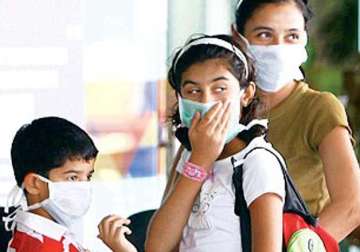New Delhi: The air inside Delhi schools is "very unhealthy" and could affect lung functioning resulting in respiratory illness among children, Greenpeace India said Monday.
The air-quality monitoring survey carried out by Greenpeace inside five prominent schools across Delhi found the particulate matter (PM) 2.5 levels to be four times the Indian safety limits and 10 times that of the World Health Organisation, said a statement by the NGO.
PM refers to the particles found in the air, including dust, dirt, soot, smoke, and liquid droplets. Particles less than 10 micrometers in diameter (PM10) pose a health concern because they can be inhaled into and accumulate in the respiratory system.
Based on a study conducted by US Environmental Protection Agency, Greenpeace India claimed that the particulate matter 2.5 is a "very unhealthy" level that "will mean reduced lung functioning, increase in asthma and respiratory illnesses".
"This establishes the fact that air pollution levels inside Delhi's schools are alarmingly high and that children are consistently breathing bad air. The government needs to acknowledge the severity of air pollution in the city and its corresponding health impacts," said Greenpeace campaigner Aishwarya Madineni.
Latest India News
